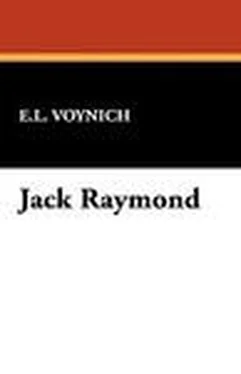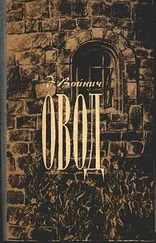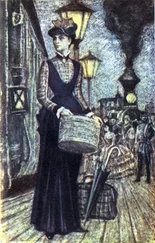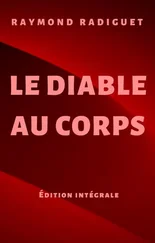Этель Лилиан Войнич - Jack Raymond
Здесь есть возможность читать онлайн «Этель Лилиан Войнич - Jack Raymond» весь текст электронной книги совершенно бесплатно (целиком полную версию без сокращений). В некоторых случаях можно слушать аудио, скачать через торрент в формате fb2 и присутствует краткое содержание. Жанр: Классическая проза, на английском языке. Описание произведения, (предисловие) а так же отзывы посетителей доступны на портале библиотеки ЛибКат.
- Название:Jack Raymond
- Автор:
- Жанр:
- Год:неизвестен
- ISBN:нет данных
- Рейтинг книги:3 / 5. Голосов: 1
-
Избранное:Добавить в избранное
- Отзывы:
-
Ваша оценка:
- 60
- 1
- 2
- 3
- 4
- 5
Jack Raymond: краткое содержание, описание и аннотация
Предлагаем к чтению аннотацию, описание, краткое содержание или предисловие (зависит от того, что написал сам автор книги «Jack Raymond»). Если вы не нашли необходимую информацию о книге — напишите в комментариях, мы постараемся отыскать её.
Jack Raymond — читать онлайн бесплатно полную книгу (весь текст) целиком
Ниже представлен текст книги, разбитый по страницам. Система сохранения места последней прочитанной страницы, позволяет с удобством читать онлайн бесплатно книгу «Jack Raymond», без необходимости каждый раз заново искать на чём Вы остановились. Поставьте закладку, и сможете в любой момент перейти на страницу, на которой закончили чтение.
Интервал:
Закладка:
His first idea had been to keep the bird, and tame it. Certainly a thrush would be a second-rate kind of pet; he would have much preferred, for instance, a starling, which could be taught to swear, and to blaspheme against bishops and against green-handled knives and missions to deep sea fishermen. But a thrush would be better than nothing; and if he was going to get into trouble for its sake, it was only fair that he should have some fun out of the transaction. On the other hand, wild creatures do not always take kindly to captivity; and for that matter, uncle would be angry enough to kill the bird for sheer spite if ever he should happen to find out. Had he hot drowned Molly's pet kitten last winter, to punish her for getting her frock dirty? Jack's eyes darkened at the memory; he hated the Vicar with the silent, poisonous hatred that remembers and bides its time; and in his long and heavy score agaihst his enemy this was a big item. Until lately his attitude towards Molly had been one of Olympian indifference; what had he to do with a mere girl, who was afraid of the dark and couldn't so much as throw a stone straight? But the day when he had come home from school and found her in the tool-house, blind and sick with crying because Tiddles was dead, — ("and oh, Tiddles did squeak so!") — had been the beginning of a new sense in him, that it was somehow his business to protect his sister.
No, there was nothing for it but to let the bird go. The fate of Tiddles was a warning; it does not do to get fond of creatures that you are not strong enough to defend. Once free inTrevanna glen, the mavis must fight its own battles.
"If you get caught again, you little duffer," he remarked, rising and opening the window; "I shan't help you out; once is enough."
Trevanna glen lay soft and dim in a golden sunset haze. The sky was too clear for flaming colour; only a few high cloudlets trailed their faint rose bands across the west. From the beach came a low sound of ripples on the shingle; then the wailing cry of a sea-gull.
As Jack opened the cage door the mavis fluttered, panic-stricken, and shrank away. He drew back a little, and the bird passed by him like a lightning flash. He heard a sudden cry, a whirring of swift wings; and leaned upon the sill, following with his eyes a moving black spot, small and smaller, that darted straight towards the glen.
He crossed the room and sat down on his bed, holding on to the foot-rail. He seemed to have gone all shaky inside, and there was a tightening in his throat. When he shut his eyes the tree-tops came back, and the yellow haze, and the spread wings of a living soul that had been caged and now was free.
He opened his eyes at last and looked around him, solemnly afraid. The room startled him with its familiar aspect; it was all as it had been, and he alone was changed. On the table lay his lesson books; the empty cage stood on the window-sill, the watercress dangling from its bars. He must smash up the cage, by the way, or uncle would ask...
Ah, what did uncle matter now?
He went back to the window and looked out, his shoulder on the lintel, his head against his arm. There he watched while the sunset faded. All the broad spaces between earth and sky were full of violet shadows; in the glen the tree-tops swayed a little, and grew still; the sea-birds called, and called again, and settled in the hollows, and all things fell asleep. Then stars came out; one, and another, and a thousand, shining above shadowy trees and ghostly moorland half asleep, with clear eyes, full of wonder; as if they too had only now begun to understand, and, looking down upon the world's familiar face, had seen that it was good.
CHAPTER III
As far back as Jack's earliest memories went, he had always liked animals and plants and rough grey rocks and yellow foam.
They had, indeed, been all there was to like. Human beings, especially grown-up ones, had hitherto played in his conception of life a singularly small and contemptible part. They were inevitable, of course, and sometimes useful; but neither interesting nor pleasant, and generally much in the way. Within the last three years a new element had been creeping into his relation with the adults of his world; he had begun to see in them natural, as it were, hereditary enemies. Anything brutal or stupid, any petty meanness or fidgetty interference on their part, seemed to him a matter of course, coming from creatures by nature illogical, spiteful, and incompetent; and, his standpoint having once become fixed, many wise and necessary restrictions were lumped together with the others in careless contempt. He never troubled himself about the reasons of a prohibition; if a thing was forbidden, it was presumably just because there was no sensible ground of objection to it.
Of men and women in any other capacity than that of despised authority he had little knowledge. After the loss of the black-browed mother whom he could dimly remember, he and Molly had spent four years in St. Ives under the care of their grandmother and a crotchetty maiden aunt. These two ladies had regarded the children as visitations of Providence, whom, for their sins, they must at regular intervals feed and wash, especially wash; no boy was ever more heroically scrubbed than Jack. But cold water and rough towels, excellent as they were, had not satisfied all the soul's needs of the growing boy; and as quite a small child he had sat up in his bed in the dark to address, to the big anthropomorphic Thing which he had been taught to worship, a bitter reproach; "It's not fair. What did You make me for, if You weren't going to let anybody want me?"
The sailor father had wanted him, at any rate; it had been good to know that there was one person in the world who did not think it a disgrace for a boy to be dark and ugly and to have black eyes like his mother's, even though that person was nearly always at sea. But then had come a night of rough weather aтd distress signals all along the coast; and the next morning Aunt Sarah had driven over with a white face and a telegram. Since then the orphans had lived at the Vicarage in Porthcarrick.
Uncle Josiah and Aunt Sarah had shown to the passionate boy much earnest care for his body's welfare and his soul's health, but very little personal friendliness or affection; and that little, when it came from the man, he resented as impertinence, when from the woman, despised as weakness. People should play fair, and not try to catch you with shams that you didn't expect. Grownups had two recognised engines of warfare, and should stick to them. One was moralising, or "jaw"; the other, sheer coercion. This latter, though disagreeable, seemed to him the more logical weapon. It would have saved trouble to begin with the thing, once they were going to end with it. Indeed, the Vicar would have been surprised could he have learned how much more keenly the boy resented his sermons than his punishments. Innumerable thrashings had instilled into Jack a certain respect for a person who can hit hard; and had his relations with his uncle begun and ended with the cane, there would have been on his part far less bitterness; but the moralising filled him with scorn, and the occasional attempts at friendliness with fierce disgust.
Aunt Sarah he simply despised. She, poor woman, had certainly never been guilty of any brutality towards him; it is doubtful whether she had uttered a harsh word to any one in all her ineffectual, well-meaning days. Her ambitions went no further than to see around her smiling faces of contented servants and children, looking up in happy submission to their and her king; and her one grief, besides that of childlessness, was that the faces, though mostly submissive enough, were not always happy. Jack, in a chronic state of disobedience and revolt, was to her an utterly unsolvable problem. She was always kind to him, — it was not in her to be otherwise to any living thing, — but she looked upon him with a sort of dread, and with a feeling which, in a more definite nature, would have been dislike; he was so inconvenient. Her little careful plans to make things "go smoothly" were always being disturbed and thrown out by this one impossible factor.
Читать дальшеИнтервал:
Закладка:
Похожие книги на «Jack Raymond»
Представляем Вашему вниманию похожие книги на «Jack Raymond» списком для выбора. Мы отобрали схожую по названию и смыслу литературу в надежде предоставить читателям больше вариантов отыскать новые, интересные, ещё непрочитанные произведения.
Обсуждение, отзывы о книге «Jack Raymond» и просто собственные мнения читателей. Оставьте ваши комментарии, напишите, что Вы думаете о произведении, его смысле или главных героях. Укажите что конкретно понравилось, а что нет, и почему Вы так считаете.











